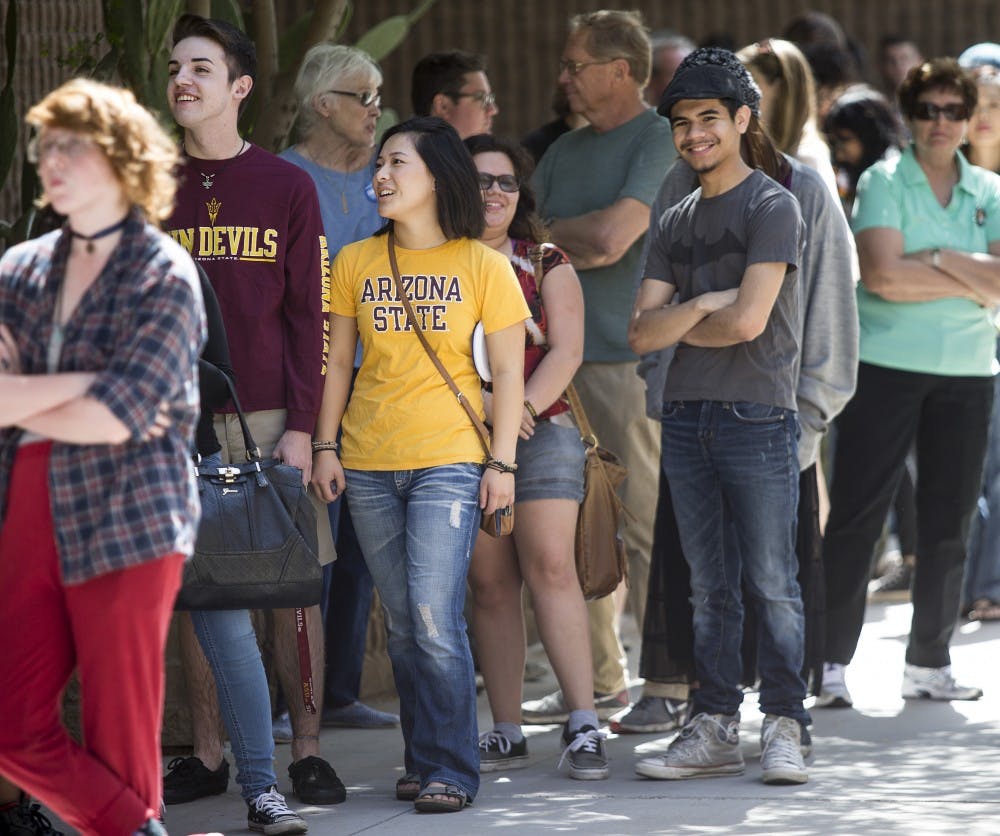Fewer jobs, fixed wages, environmental concerns, increased debt, national security crises and a stagnant economy are all indicative of the fact that the millennial generation faces a plethora of problems that could deteriorate the fabric of American prosperity.
The issues that press the U.S. put our country in a dire state, but these challenges can be solved. As of this year, millennials are the largest proportion of voters. This same group, in order to resolve this upcoming crisis, needs to start doing something that may be difficult for them: getting along with each other.
While there is a debate among political scholars on whether or not party polarization is occurring, the 2014 midterm elections illustrated that the majority of voters found themselves “consistently conservative” or “consistently liberal.” A sharp rift grew in the nation as the election became the most partisan and nationalized midterm election in sixty years.
As a result of the increasing partisanship, compromise and negotiations between the parties have halted on Capitol Hill, with some serious consequences. Congress's approval rating is at an all-time low, with only about fourteen percent of Americans believing political leaders are doing an effective job.
Compromise and negotiations are vital for the American political system as it is founded on those principles. Congressional-passed legislation is meant to be thought-out, rational and bipartisan. If some sort of agreement cannot be reached, then typically policy gridlock occurs in which nothing gets done.
There is considerable evidence to suggest that voters have grown increasingly partisan, but one voter subset stands out: the youth. Young Americans are increasingly more likely to initially register as independent, according to a Gallup poll.
From this poll, two things are noteworthy:
- Over time, the majority of Americans undergo a strong ideological shift.
- There is potential for the youth to continue embracing an independent political nature.
As millennials have become the largest population of voters, the initial bipartisan nature of young voters must be preserved to spur drastic change in American politics.
The future of American politics relies on the ability for us millennials to embrace bipartisanship and the ability to compromise. Our role to play in politics involves promoting a collectivist mentality of mutual understanding to encourage the act of "working across the aisle."
Scholarly debate is essential, yet cannot be done without mutual understanding. Millennials are already applying this to social issues, but it needs to be further implemented into the political system. Without both political parties working in unison, prosperity and progress cannot be achieved.
Perhaps most importantly of all, millennials need to redeliver the message that, regardless of political party, everyone is trying to do what's best for the country. Society can no longer allow the notions that Donald Trump is Hitler or Bernie Sanders is the next Stalin to be perpetuated solely because society disagrees with a candidate politically. Should millennials continue the practice of antagonizing the other political party, the foundations of our government and laws could crumble.
The road to political change will be a tumultuous journey for millennials, but I believe we will have the fortitude to complete it. If one looks around campus, it is already evident that this mutual respect and push for compromise is sprouting. Civic engagement is growing on campuses, so there is potential for a political ideological change to bipartisanship. Students are becoming more informed and are often taught to respect each other. With time and patience, we could implement these ideas into our politics and see a huge shift in American politics that emphasizes openness rather than hostility towards the opposite side of the political spectrum. The political role of millennials is to unify the sharp divides between the parties. Most importantly, our role starts right here, right now.
Reach the columnist at jeffery.brooks@asu.edu or follow @abrooks14 on Twitter.
Editor’s note: The opinions presented in this column are the author’s and do not imply any endorsement from The State Press or its editors.
Want to join the conversation? Send an email to opiniondesk.statepress@gmail.com. Keep letters under 300 words and be sure to include your university affiliation. Anonymity will not be granted.
Like The State Press on Facebook and follow @statepress on Twitter.




